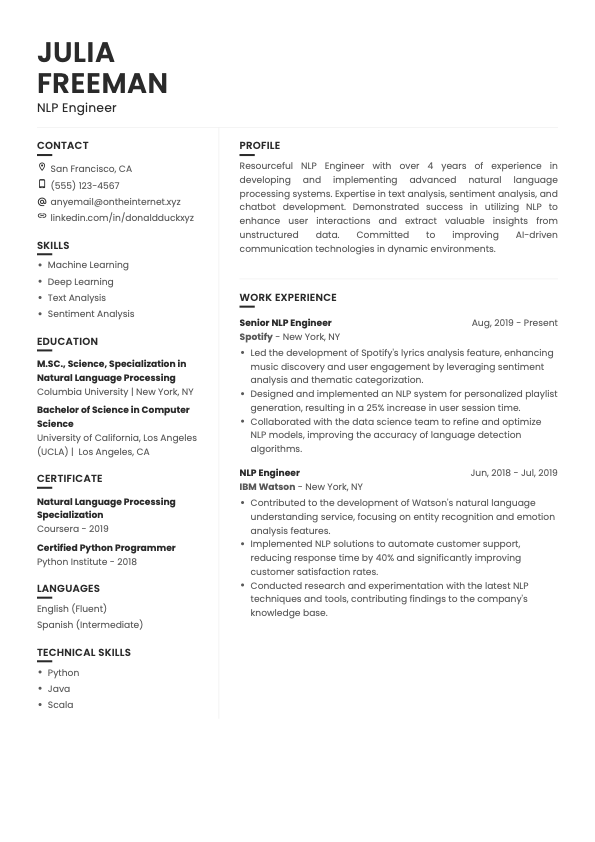
With the rapid advancement of AI technology and the growing need for machines to understand human language, NLP engineering is set to be one of the most in-demand skill sets in the coming decade. Here’s a breakdown of what to include in your resume to set yourself apart from the competition as an NLP Engineer.

"Passionate NLP Engineer with over 5 years of experience specializing in machine learning, AI, and linguistics. Skilled in transforming linguistic complexities into understandable language models and integrating these with AI systems. Proven track record of developing robust language comprehension systems leading to significant improvements in machine-human communication."
Tips for Writing a Strong Resume Summary
Keep it brief: Aim for 3-4 sentences, ideally between 50 – 100 words.
Focus on your most relevant experiences and achievements.
Incorporate keywords from the job description to align with the employer’s expectations.
- Developed an NLP model that improved machine understanding of human language by 30%, facilitating smoother machine-human interactions.
- Utilized machine learning algorithms to enhance the efficiency and accuracy of language translation systems, improving translation accuracy by 25%.
- Led an AI integration project that improved system response times, enhancing user experience by 40%.
Best Practices for Experience Section
Use reverse chronological order, starting with your most recent role.
Include company names, job titles, and dates of employment.
Emphasize accomplishments that align with the job responsibilities.
Technical Skills
Soft Skills
Tips for Skills Section
Use bullet points for clarity and readability.
Tailor your skills to match the job description.
Prioritize the most relevant skills for this role
Tips for Including Courses and Certifications
Creating a professional resume doesn’t have to be daunting. With the right guidance and tools, you can craft a resume that captures your strengths and impresses hiring managers. Use the Careerpilot resume builder and explore our suggested resume templates to get started. With our intuitive platform, you’ll have a polished and customized resume in no time. Start building your resume today and take the first step toward your next career opportunity!
We use cookies to enhance your experience. By continuing to visit this site, you agree to our use of cookies. Not consenting or withdrawing consent, may adversely affect certain features and functions.